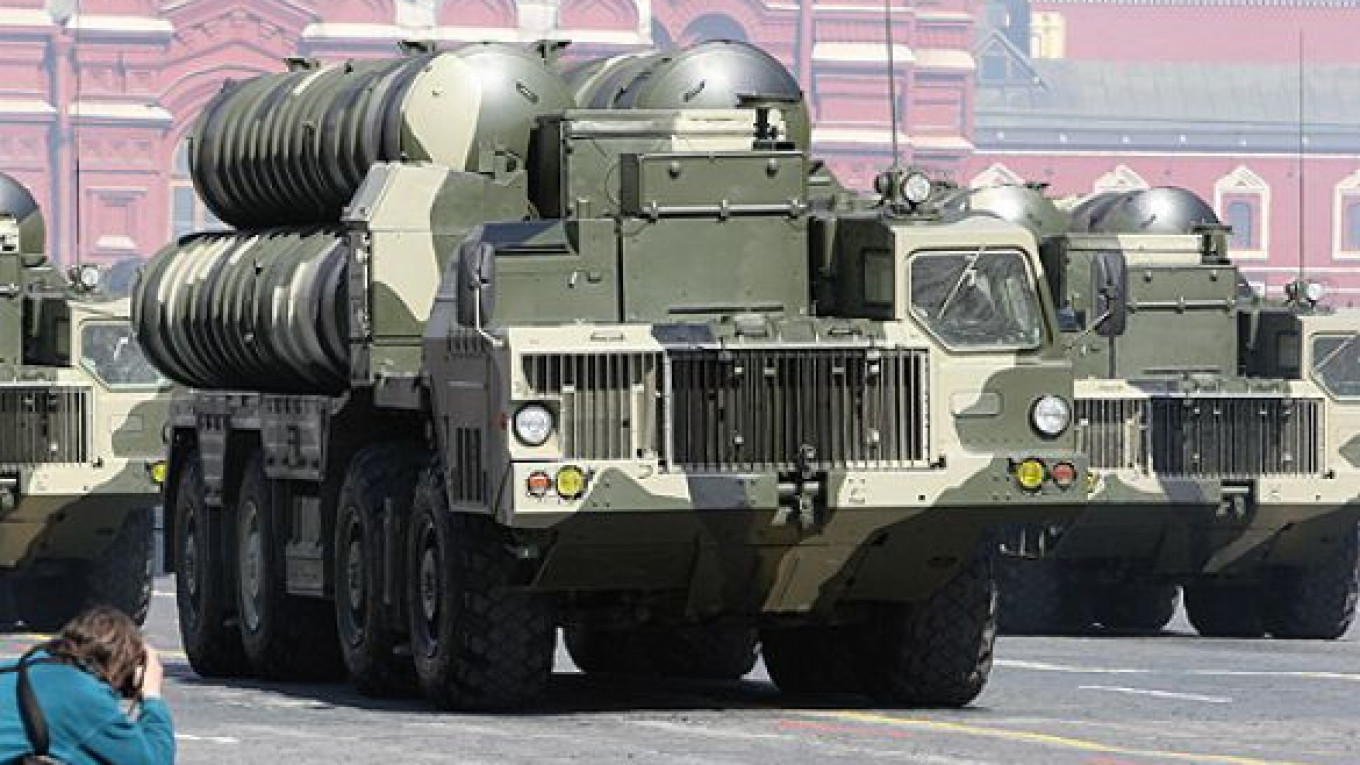With Iran suing Rosoboronexport for as much as $4 billion over the arms exporter's refusal to deliver S-300 missile systems, the Kremlin's recent diplomatic threats are unlikely to stop the lawsuit, a top defense consultant said Sunday.
Igor Korotchenko, chairman of the Defense Ministry's public council, said in a telephone interview that the Kremlin's tough words over Iran's lawsuit in Geneva were short-sighted.
For more than a week, the government has said it will abandon its long-time support of Iran and take a harder line on Tehran's nuclear program if it presses ahead with the lawsuit, Kommersant reported.
But Iran won't drop its case unless the Kremlin finds a way to provide it with the surface-to-air missile systems, said Korotchenko, who supports Russian arms deals with Iran.
A Geneva-based arbitration court is hearing the case.
Korotchenko called the situation over the S-300 "really unclear" and predicted that President Vladimir Putin wouldn't make a decision about the lawsuit until after the U.S. presidential election, which will be held in early November.
With the S-300 suit, it isn't even clear how much money Iran is seeking.
The Russian-language media have widely reported the figure as $4 billion, but Iran's ambassador in Moscow, Sayed Mahmoud Reza Sadjadi, Izvestia that Iran was suing for only $900 million and the court had added $3 billion.
Korotchenko said compensation isn't the issue. "Iran is not interested in the money. Iran is interested in the S-300," he said.
Under the 2007 contract for the antiaircraft weapons, Russia agreed to sell five S-300 missile systems to Iran for about $800 million, according to RIA-Novosti.
Iran made a deposit of tens of millions of dollars for the weapons, but Russia returned that down payment when then-President Dmitry Medvedev suspended the contract in 2010, citing UN sanctions against Iran.
Meanwhile, Iran's Foreign Ministry accused the media of using the disagreement to hurt Iranian-Russian relations.
"We are only trying to have the contract fulfilled," ministry spokesman Ramin Mehmanparast said in Tehran last week, RIA-Novosti reported.
The plaintiffs in the lawsuit are the Iranian Defense Ministry and the country's Aerospace Industries Organization.
Iran's push for the long-range missiles comes amid Hezbollah's against Israeli civilians and the Israeli government's announcement that it could Iran's nuclear facilities.
Related articles:
A Message from The Moscow Times:
Dear readers,
We are facing unprecedented challenges. Russia's Prosecutor General's Office has designated The Moscow Times as an "undesirable" organization, criminalizing our work and putting our staff at risk of prosecution. This follows our earlier unjust labeling as a "foreign agent."
These actions are direct attempts to silence independent journalism in Russia. The authorities claim our work "discredits the decisions of the Russian leadership." We see things differently: we strive to provide accurate, unbiased reporting on Russia.
We, the journalists of The Moscow Times, refuse to be silenced. But to continue our work, we need your help.
Your support, no matter how small, makes a world of difference. If you can, please support us monthly starting from just $2. It's quick to set up, and every contribution makes a significant impact.
By supporting The Moscow Times, you're defending open, independent journalism in the face of repression. Thank you for standing with us.
Remind me later.






